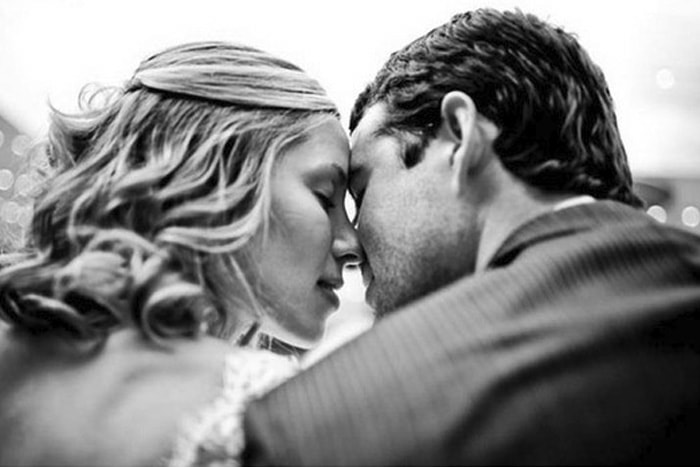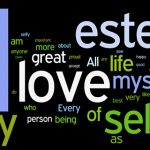When love and possessiveness mix together, they infect relationships and undermine happiness

There’s a question I’ve been asking myself for some time and that comes back to my attention every time I’m in front of the phenomena of love and possessiveness, as well as jealousy.
While listening to stories of friends, acquaintances and customers, who live day by day in the grip of jealousy, totally (or almost) controlling the other person and, sometimes, in an asphyxiating symbiosis, I’ve often wondered how love and possessiveness can live in a relationship without weakening it and, as a consequence, without undermining happiness of the individuals involved. Obviously, the question I ask myself lies in my career as a Coach and in the path toward the achievement of personal happiness.
I think that many of you, at the sound of the word “possessiveness”, have recalled scenes of jealous husbands and wives who complain about the little delay, who suspiciously spy on their partner’s phone or laptop in order to track down ambiguous messages or mails, who “edit movies” worthy of the greatest Hollywood producer if the partner dearly greets (or maybe hugs!) a friend.
Has anybody ever been in similar situations, or personally lived them?
Maybe you’re reading these short considerations and you’re just living an analogous situation. On closer view, out of any philosophical and psychological study (which aren’t part of the Coach’s culture and interest), love fits into the world of emotions and feelings, it deals with the inner side of human beings, their sentiments and perceptions, but never their “possession”.
Possession, instead, is an element that for its own nature belongs to the area of goods, of matter, of what is or can be subject to an exercise of power. It’s no coincidence that possession, in the legal field, is defined as a power manifested de facto as a thing corresponding to the exercise of property rights.
I think that the first important data emerge from this: love concerns people and their emotional sphere; possession refers to a power over things. On the basis of the above and excluding the same position of human beings and objects, I’d say that the sense of possession is totally incompatible with love. If you’re a possessive partner and you wanted to consult a Coach, he would help you wonder what drives you to obsessive behaviors such as jealousy and control over your wife or husband, over your boyfriend or girlfriend… over your life partner, in short.
What are the reasons the make you adopt a kind of conduct which is more similar to the one reserved to an object (the famous “res”, of latin origin) with your partner, instead of acting by showing your emotions free of any kind of virus such as jealousy, over-control, psychological oppressions, manipulations and everything that is translated into an expression of possession over the other person?
Talking about your partner, what makes you affirm sentences such as “He/she is mine!”, and believe that his or her individuality (but also yours!) can’t keep existing even in a happy couple relationship? Thus said, this matter may appear insignificant or may seem a story old as time that can’t have solutions.
But, on second thoughts, I believe it isn’t neither of the two. Rather, I actually believe it is possible to explore the emotional burden that makes you express possessiveness, and I also believe there is a solution that will make you get back the joy of a serene relationship. In fact, I’m convinced that the deep comprehension of the conduct activated by a possessive person passes through the recognition of some emotional dynamics. I can find the answers to my questions only by formulating another one: what is the basic emotion that governs you in your possessive way of acting? I personally think that such emotion is fear.
If you need to express some kind of control over your partner, underlining the existence of an absolute bond between you two and that doesn’t leave any space to other things; if you forbid your wife or your husband to express the personal individuality and cultivate personal interests (it doesn’t matter wether it is a job, a hobby or friendships), you’re probably governed by the fear of losing the other person, of somehow seeing your partner go away from you to some degree. In other words, you’re afraid of losing the role of protagonist in your partner’s life which you think belongs to you (not to him or her). It’s often the fear of people who are deeply unsure ,under the rational profile, and who see themselves as “parts of the couple” and demand a lot, denying the other person’s authenticity and individuality: in other words, freedom.
It’s the expression of individual needs of certainty that may result in jealousy, control, judgement and in the inauspicious belief that your partner must, in primis, take care of you and of your necessities, forgetting about himself, his needs and, sometimes, his dreams.
But love (ladies and gentlemen) is freedom!
I realize that in the “social culture” we’ve been accustomed to, such affirmation may seem too strong, or even disturbing. We’ve been taught that “couple and family come before anything and anyone”. I also believe it, of course. Before anything and anyone, however, doesn’t mean before yourself ,or at least it doesn’t mean that love must make you lose your authenticity, your existence as an individual with needs, potentialities and wishes. I’m not talking about egoism, but I’m talking about true love and the deepest meaning I attribute to it.
Loving means allowing to be free, leaving the partner the possibility to express his or her personality inside and outside the couple, as well as the chance to succeed in life and make dreams come true.
Loving means welcoming the other person, and welcoming means making room in oneself, not repressing people as individuals and making them slave to a logic of deleterious couple for both. When love is supported by freedom, trust and respect, the couple gets regenerated, it lives the beauty of being together and the amazing effects of the discover of the other person, as a unique individual first, and then as a part of the relationship in couple.
Such discovery demands the awareness and the recognition of your emotions. And, in this case, a Coaching path could be very useful. It is only the emotional awareness of what you live that will let you recognize the effects on yourself, and then on the relationship in couple. Once again, the socratic concept “Know yourself” can be useful to improve your life and your relationships.
Coaching principles can help you be aware of your emotions, listen to yourself, understand which are the mechanisms, triggered by specific emotional states, that find their expression in the couple relationship and produce maniacal actions such as scenes of jealousy, over-control and continuous suspects. Listening to yourself and to your emotions will make you open to listening to your partner, to sharing experiences and needs and to tracing together a path to harmony and happiness.
Choose a proper and specific Life Coaching path, and try to definitively get free of these “emotional chains” which, in the longer term, may even destroy a united and consolidated couple. The solution exists: set your goals with the support of an expert professional Coach and follow a proper action plan.
The desire in the future to live a serene and long-lasting couple relationship depends on a deep work on yourself; don’t miss the chance to be happy!
Get free of possessiveness and jealousy, and happily live your love relationship!


 Share On Facebook
Share On Facebook Tweet It
Tweet It



























